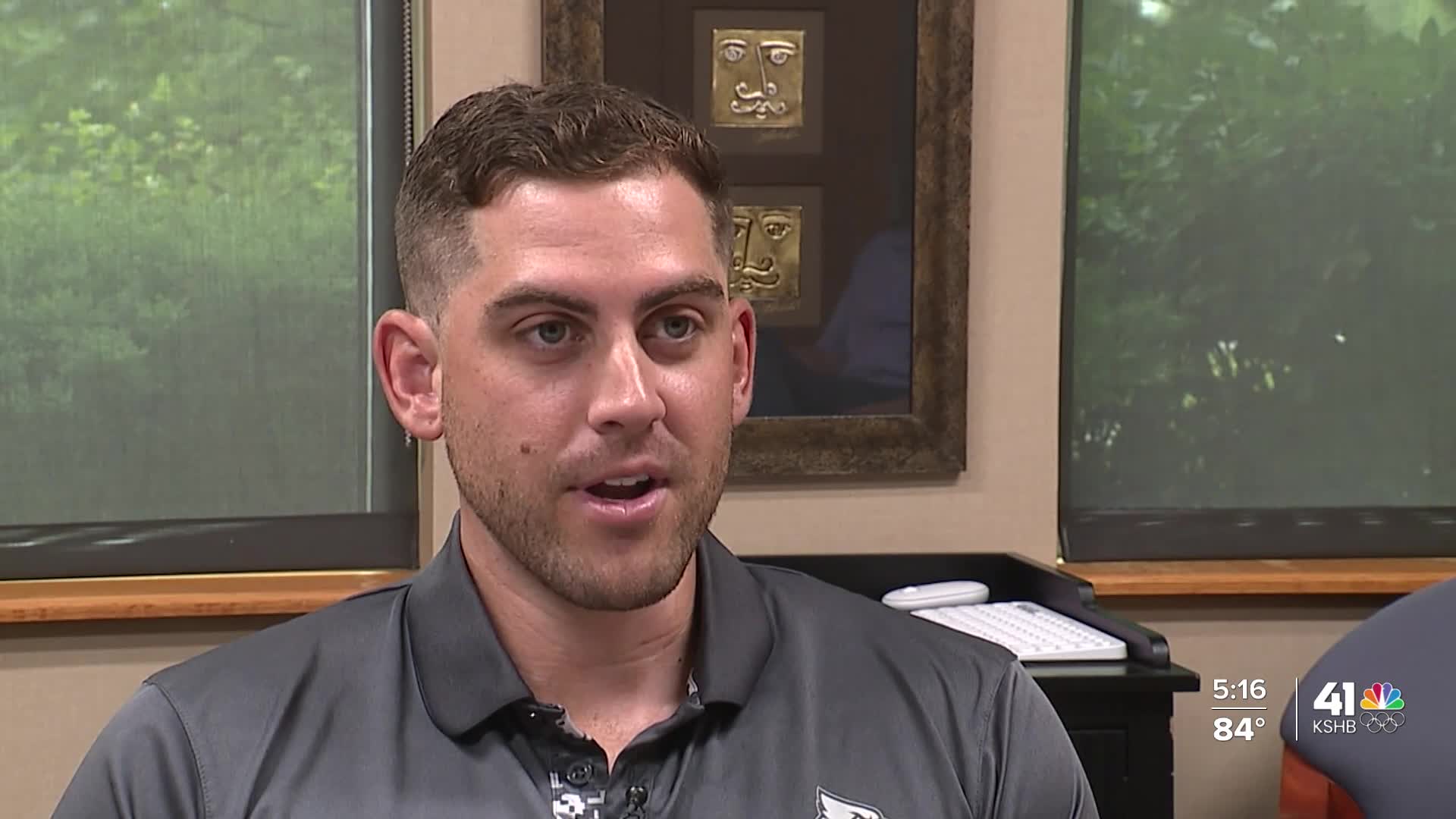LENEXA, Kan. — June is Raising KC month in Kansas City.
It’s a program that aims to bring awareness to the long-term mental and even physical harms from toxic stress that can impact children well into adulthood.
An American Academy of Pediatrics study suggests that safe, stable, nurturing relationships with one or more adults is the best way to prevent toxic stress, which can derail development, according to Harvard researchers.
RELATED | Raising KC campaign wants to prevent toxic stress in children
Those relationships can be built at home, at school or even on the baseball diamond.
Jim Ferguson, who owns J&J Printing in Lenexa, always loved playing catch with his dad, but a neighbor’s interest in teaching him the game put him on a path to play baseball in high school and eventually at Kansas State.

“My dad (Jim) didn’t know anything about baseball,” Ferguson said. “We played catch, but he was a basketball player. That was his sport. (Neighbor) Richard (Arnold) knew the game; I loved the game.”
Arnold spent hours teaching Ferguson, a 1977 Shawnee Mission South graduate, how to swing a bat, field a ball, throw and snag flyballs at the local elementary school.
“To see his passion helped fuel my passion, because anybody that’s willing to give up their time to help you and there’s no monetary or any type of reward for it other than they want to do it, that always left a big impression on me,” Ferguson said.
Shane Hummel was 11 years old when he first joined Ferguson’s Mac-N-Seitz team. It was the start of a relationship that would transcend baseball.

“You don’t realize it when you’re a 13-year-old, punk baseball player,” Hummel said. “But I’m 29 now. He was more than a coach. He was a great husband, a great father and a great friend. The life lessons that he teaches you — baseball is important, sure — but getting that foundation for being a decent human being was the biggest thing I’ve taken away from him.”

Ferguson coached several youth baseball teams before partnering with Mac-N-Seitz. He also worked as an assistant with the Raiders for his high school coach, Bill McDonald, and served as pitching coach for St. James Academy.
“It's so fun to see the young kids that you worked with to develop and now to see them as adults and out on their own,” Ferguson said. “Shane was, right from the get-go, you could tell he had a lot of talent and he loved baseball. We had to get him a little bit focused. Once he became focused, he just really blossomed.”
Home life is critical for children to grow up happy, healthy and well-adjusted, but the wider environment in the community also has a massive impact.
“It started out with just baseball — 13 years old, you don’t really think about that,” Hummel said. “But looking back now, it’s the kind of man you want to be, the kind of son, the kind of human being you want to be.”
Hummel, an Olathe Northwest graduate, played two seasons for Steve Murry at Neosho County Community College in Chanute, Kansas, before finishing his college baseball career at University of Louisville.
But he’s never forgotten Ferguson and his influence.
“I had a great family life and everything like that, but you can’t talk to your parents the same way you can talk to a coach,” Hummel said. “He was kind of both at the same time — a friend, a coach and a parent at the same time.”
There’s no such thing as too many people who love a child.
“One of the most important things is they give you a different perspective,” Ferguson said. “Sometimes, you maybe see something just one way, because that’s the way you grew up, that’s the way you know. Now it’s, ‘OK, there’s another way to view things. It opens up your mind, your creativity.’”
The coach/player relationship — or really any mentoring relationship — often has a broader impact than anyone realizes in the moment, but it can be a critical relationship for a child’s long-term development.
“We kind of grew up as a family that it was important to do community service and, to me, that was my community service,” Ferguson said.
—







